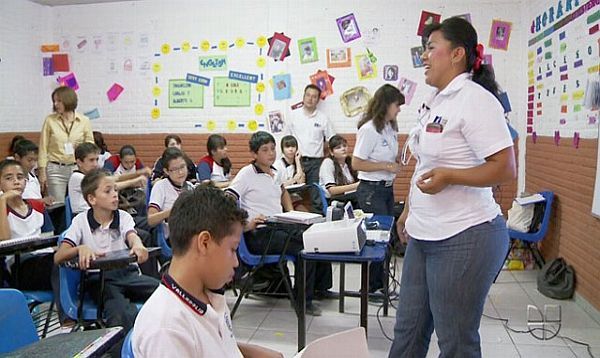The Mexican school-system overhaul that's created evaluations for teachers has grown in acceptance among them, a step that could improve learning and opportunity for students in the nation's poorer south, the country's education minister said.
The government has evaluated 96 percent of teachers in Chiapas, Michoacan and Oaxaca, three states where resistance was strongest, Aurelio Nuņo said. President Enrique Pena Nieto's administration is now focused on improving school buildings and revising the curriculum, including a greater emphasis on English, he said.
The overhaul faced resistance from the CNTE teachers' union after its passage shortly following Peņa Nieto's inauguration in 2012. Teachers often traveled to Mexico City to protest, and a clash between demonstrators and police in Oaxaca last year resulted in the death of at least eight civilians.
The changes in part seek to base teacher hiring and promotion on merit, ending the practice of educators selling their teaching positions to the highest bidder upon retirement and avoiding dismissal for lack of ability.
"Clearly we haven't overcome everything, there continues to be some resistance," Nuņo, 39, said in an interview Monday night. "But the advance is clear, it's present, and that's something that makes us very happy and encourages us."
Beyond teacher evaluations, the overhaul moves the nation's public schools away from a system based on rote memorization to one where children actively learn, Nuņo said. The government aims to have all students speak English as well as Spanish within 20 years, better preparing them to compete globally and closing the opportunity gap between those who attend expensive bilingual private schools and earn more as adults and those who rely on a public, single-language education.
Read the full article on Bloomberg.com.


